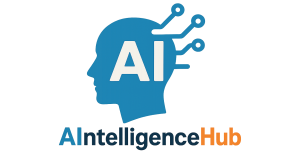
In today’s AI development, you must prioritize ethical responsibilities like transparency, privacy, and bias mitigation to build trust and accountability. Protecting private data, guaranteeing unbiased decision-making, and addressing environmental impacts are key. Collaborative governance and fairness should guide systems to uphold justice and equal opportunities. Analyzing these responsibilities guarantees technology serves humanity responsibly and sustainably. By exploring further, you’ll discover how these principles shape AI’s role in society.
Ensuring Transparency in AI Systems

When developing AI systems, ensuring transparency is essential for building trust and facilitating accountability. You need to take into account ethical disclosures as a foundational aspect of this process. Transparency requires you to openly communicate how AI models function, including the data they use and the decisions they make. This openness allows users to comprehend AI systems more deeply, enabling them to make informed decisions and trust the technology. By clearly presenting information about AI operations and potential biases, you’re promoting user comprehension and empowering stakeholders. Ethical disclosures should outline the limitations and potential risks of AI, ensuring users understand these aspects. When users are well-informed, they’re more likely to engage with AI systems responsibly, fostering an environment of trust and accountability.
Prioritizing Privacy and Data Protection
How essential is it to prioritize privacy and data protection in AI development? It’s vital. As you navigate AI’s complex landscape, safeguarding personal information becomes paramount. You must employ data anonymization techniques to strip identifying details, guaranteeing user data remains confidential. This isn’t just a technical requirement; it’s an ethical imperative. Additionally, you need to establish robust user consent frameworks. These frameworks empower individuals by granting them control over how their data is collected, stored, and used. By prioritizing these measures, you uphold trust and foster a responsible AI environment. Remember, as AI systems grow more sophisticated, vigilance in privacy protection isn’t optional—it’s a duty. Balancing innovation with ethical considerations guarantees AI’s potential benefits society without compromising individual rights.
Mitigating Bias and Discrimination
Although AI has the potential to transform industries and improve lives, mitigating bias and discrimination within these systems is essential to ensuring fairness and equity. You must engage in intersectional analysis to understand how systemic inequalities and historical context influence AI biases. By incorporating cultural sensitivity, you can address diverse perspectives and reduce discriminatory outcomes. Ensuring algorithmic fairness requires continuous stakeholder engagement, where developers, users, and affected communities collaborate to identify biases and assess community impact. Education initiatives play an important role in raising awareness about the complexities of AI bias. These efforts help you understand the societal implications and encourage responsible AI development. Only through extensive strategies can you achieve equitable AI systems that serve all communities fairly.
Promoting Accountability in AI Deployment

To effectively promote accountability in AI deployment, you must focus on establishing transparent decision-making processes that allow stakeholders to understand how AI systems reach conclusions. Additionally, you should address the potential for unintended consequences by implementing robust monitoring mechanisms to identify and correct issues promptly. This approach guarantees that AI technologies operate ethically and maintain public trust.
Transparent Decision-Making Processes
What role does transparency play in AI decision-making processes? It serves as a cornerstone for building trust and accountability. By adopting transparent methodologies, you’re ensuring that AI systems are understandable and predictable. This approach allows stakeholders to grasp how decisions are made, fostering confidence in the technology. Inclusive practices further enhance transparency by involving diverse perspectives, which can identify potential biases and improve fairness. When you prioritize these elements, you create an environment where AI decisions can be scrutinized and validated. This openness not only promotes ethical standards but also reassures users about the integrity of AI systems. Ultimately, transparent decision-making processes empower you to hold AI developers accountable, ensuring that AI technologies serve the broader societal good.
Mitigating Unintended Consequences
While developing AI systems, addressing unintended consequences is essential for promoting accountability in their deployment. You need to anticipate potential pitfalls by integrating ethical foresight into the design and implementation stages. By doing so, you can identify areas where AI might fail or cause harm, allowing for the creation of safeguards and mitigation strategies. Ethical foresight involves evaluating not just immediate outcomes, but also long-term impacts on society, economy, and culture. It requires a commitment to continuous monitoring and adapting systems as they interact with the real world. By acknowledging and preparing for unintended consequences, you guarantee AI deployment remains responsible and aligned with ethical standards, minimizing risks and enhancing public trust in AI technologies.
Safeguarding Human Autonomy and Decision-Making

Preserving human autonomy and decision-making in the domain of AI development is a fundamental ethical responsibility. You must guarantee that AI systems respect human agency and maintain decision integrity. This involves upholding autonomy respect by obtaining informed consent and allowing cognitive freedom. AI shouldn’t overpower your choices but instead offer ethical nudging to support decision-making without undue choice influence. You should be empowered through strategies that enhance your ability to make informed decisions. Developers must design AI to bolster your autonomy, not diminish it, guaranteeing that AI acts as an assistant rather than a director. By prioritizing empowerment strategies, developers can foster environments where AI enhances rather than controls human decision-making, maintaining a balance between assistance and autonomy.
Fostering Inclusivity and Diversity in AI Design
In the domain of AI development, guaranteeing that systems bolster human autonomy naturally leads to the consideration of inclusivity and diversity in design. You need to integrate cultural representation and diverse perspectives through collaborative design. This involves community engagement and stakeholder involvement to guarantee equitable opportunities and accessibility considerations. By fostering inclusive practices, AI systems can better reflect the diverse societies they serve.
| Aspect | Importance | Action |
|---|---|---|
| Cultural Representation | Promotes understanding | Include diverse datasets |
| Community Engagement | Builds trust and relevance | Conduct focus groups |
| Accessibility | Guarantees usability for all | Implement adaptive tech |
Balancing Innovation With Risk Management
When you’re developing AI, prioritizing ethical innovation means considering the potential impacts on society and ensuring advancements align with moral values. You must implement risk mitigation strategies to manage unintended consequences effectively, balancing progress with safety. This approach not only safeguards users but also sustains AI’s credibility and long-term viability.
Ethical Innovation Prioritization
Although innovation drives progress, it is vital to prioritize ethical considerations in AI development to balance creativity with responsible risk management. By implementing ethical design and sustainable development, you guarantee responsible innovation aligns with societal values. Focus on inclusive technology and user-centric approaches by engaging stakeholders and understanding diverse perspectives. This not only enhances the long-term impact of AI but also fosters cultural sensitivity in global applications. Interdisciplinary collaboration is important for integrating ethical guidelines across various sectors, making sure your AI solutions address complex challenges responsibly. Prioritizing these elements in your development process allows you to innovate without compromising ethical standards, ultimately leading to technology that benefits all users while minimizing potential risks.
Risk Mitigation Strategies
Balancing innovation with risk management in AI development requires a proactive approach to identifying and mitigating potential pitfalls. You should implement robust risk assessment frameworks to evaluate AI systems’ potential impacts. By doing so, you can preemptively address ethical concerns and technical vulnerabilities. Contingency planning is essential; it allows you to respond swiftly to unforeseen issues without halting innovation. Consider the following strategies:
| Strategy | Benefit |
|---|---|
| Regular Audits | Early detection of risks |
| Scenario Analysis | Preparedness for unexpected events |
| Stakeholder Engagement | Diverse perspectives and insights |
| Ongoing Training | Up-to-date knowledge and skills |
Employ these strategies to balance innovation with responsibility, ensuring AI development aligns with ethical standards while managing risks effectively. This approach fosters trust and sustainability in AI systems.
Addressing the Environmental Impact of AI Technologies
As AI technologies advance rapidly, the environmental impact of these innovations demands careful examination and responsible management. You need to focus on sustainable resource management to mitigate the carbon footprint of AI systems. Implementing eco-friendly algorithms can greatly reduce energy consumption, helping balance technological advancement with environmental preservation. When designing AI, consider the entire lifecycle to guarantee minimal waste and efficient usage of resources. It is crucial to evaluate the energy demands of data centers and optimize AI models for energy efficiency. By prioritizing these strategies, you can align AI development with ecological goals, guaranteeing a sustainable future. Balancing AI’s growth with environmental stewardship is not just a choice but a responsibility you must embrace to safeguard the planet.
Establishing Collaborative Governance Frameworks
To effectively manage the complexities of AI development, establishing collaborative governance frameworks is vital. You need to guarantee that all stakeholders—from developers to policymakers—are actively engaged in the process. Stakeholder engagement fosters a shared understanding of ethical considerations and helps identify diverse perspectives significant for thorough decision-making. It’s important to align policies across different sectors and regions to create a cohesive approach to AI governance. Policy alignment guarantees that AI technologies are developed and deployed responsibly, minimizing risks associated with their use. By collaborating, you can establish standards that guide AI development, addressing concerns about transparency, accountability, and security. Ultimately, these frameworks serve as the foundation for sustainable and ethical AI advancements, balancing innovation with societal values.
Upholding Fairness and Justice in AI Applications
As you consider the ethical responsibilities in AI development, addressing bias in algorithms is essential to maintaining fairness. You need to guarantee equitable data access, as it prevents systemic disparities and promotes inclusivity. Additionally, prioritizing transparent decision-making processes helps build trust and accountability in AI applications.
Mitigating Bias in Algorithms
While the promise of artificial intelligence is vast, guaranteeing fairness in AI applications remains a significant challenge. You must focus on bias detection and algorithm auditing to identify potential disparities. Implement fairness metrics and guarantee inclusive datasets are used to promote equitable outcomes. Automated fairness techniques can help adjust models to reduce bias, while model interpretability is essential for understanding decision-making processes. Training data diversity guarantees that the AI reflects a wide range of perspectives, reducing inherent biases. Engaging stakeholders in the development process fosters transparency and trust. Continuous monitoring of AI systems aligns them with ethical benchmarks. By adopting these practices, you contribute to a fairer AI landscape, where justice and equity are prioritized in technological advancements.
Ensuring Equitable Data Access
Access to diverse and representative data is fundamental for maintaining fairness and justice in AI applications. You need to address access disparities to guarantee data sharing leads to equitable algorithms. By promoting community engagement, you can help bridge the digital divide and foster inclusive datasets. Open source initiatives can play an essential role in providing fair representation by making data accessible to all stakeholders, regardless of resources. Collaborative platforms are crucial for pooling expertise and resources, allowing for more effective resource allocation. To achieve equitable data access, focus on empowering underrepresented communities and creating systems that reflect diverse perspectives. By prioritizing these elements, you guarantee AI systems are just, inclusive, and capable of serving the broader society equitably.
Transparent Decision-Making Processes
Creating equitable data access paves the way for the next vital aspect of ethical AI development: transparent decision-making processes. When AI systems make decisions, you must guarantee they’re understandable and justifiable. Open source transparency is key; it allows stakeholders to scrutinize algorithms, fostering trust. User engagement is equally essential, offering insights into system behavior and potential biases. By involving users, you create feedback loops that enhance fairness and justice.
Here’s a concise breakdown:
| Aspect | Importance |
|---|---|
| Open Source Transparency | Builds trust and scrutiny |
| User Engagement | Enhances feedback and bias detection |
| Justifiable Decisions | Guarantees fairness and justice |
Emphasizing these elements in AI applications not only upholds ethical standards but also aligns decisions with societal values, promoting long-term success.
Frequently Asked Questions
How Are Ethical Guidelines for AI Being Communicated to Developers?
You’re likely aware that ethical guidelines for AI are communicated through thorough developer training programs. These programs guarantee you understand guideline adherence by integrating principles into workshops, seminars, and online courses. They provide hands-on experiences and case studies, allowing you to practice and internalize ethical standards. Regular updates and feedback loops keep you informed and aligned with the evolving ethical landscape, guaranteeing responsible AI development in your projects.
What Role Do Cultural Values Play in Shaping AI Ethics?
Cultural values greatly influence AI ethics, as they contribute to forming diverse ethical frameworks. You must recognize cultural diversity to guarantee AI systems respect and reflect various societal norms and beliefs. By incorporating multicultural perspectives, you can create inclusive technologies that avoid biases and align with global ethical standards. This approach helps in developing AI that’s fair, transparent, and beneficial across different societies, ultimately promoting a more equitable technological future.
How Are Ethical Dilemmas in AI Resolved Within Organizations?
When you face ethical dilemmas in AI, organizations often rely on structured frameworks to guide decision-making. These frameworks help guarantee consistency and responsibility. Stakeholder engagement plays an essential role; by involving diverse voices, you can address concerns and foster transparency. Regular discussions with stakeholders facilitate understanding and alignment on ethical standards. Ultimately, resolving dilemmas requires balancing technological progress with the organization’s ethical commitments and societal values.
What Psychological Impacts Do AI Advancements Have on Society?
AI advancements can greatly affect your mental health and societal trust. As AI becomes more integrated, you might experience anxiety about job security or privacy concerns. Trust in societal systems may erode if AI decisions seem opaque or biased. To mitigate these impacts, it’s essential to guarantee AI is transparent and inclusive. By understanding and addressing these psychological effects, society can better accommodate AI’s role, fostering resilience and trust.
How Does AI Ethics Address the Challenges of Future Technological Advancements?
You need to examine how AI ethics tackles future implications through robust ethical frameworks. These frameworks guide developers to anticipate and address potential issues with technology’s evolution. They provide a structured approach to guarantee AI aligns with societal values, considering privacy, bias, and accountability. By emphasizing transparency and inclusivity, ethical frameworks help you navigate complex challenges, guaranteeing AI advancements remain beneficial and responsible in an ever-evolving technological landscape.
Conclusion
In shaping AI development today, you must guarantee transparency, prioritize privacy, and mitigate bias. You should promote accountability, safeguard autonomy, and balance innovation with risks. You need to address environmental impacts, establish collaborative governance, and uphold fairness and justice. By embracing these responsibilities, you foster an ethical AI landscape that respects human values, protects rights, and drives progress. Your commitment to these principles guarantees AI technologies serve society equitably and sustainably, reflecting a shared vision for a better future.


